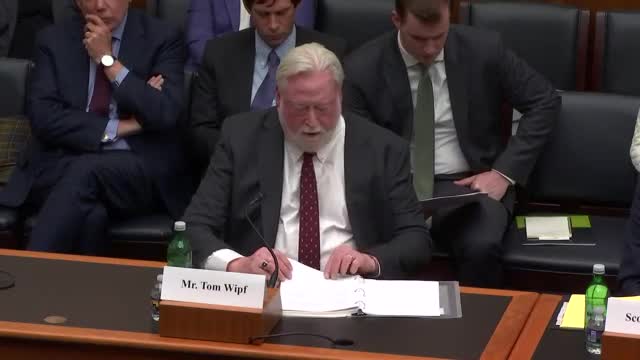Industry Urges Technical fixes, Time and Coordination for SEC Treasury‑clearing Mandate
Get AI-powered insights, summaries, and transcripts
Subscribe
Summary
Industry witnesses told the House task force that the SEC clearing rule needs technical adjustments and close regulator‑industry coordination to avoid operational disruption when central clearing of eligible cash and repo transactions takes effect.
Chairman Lucas opened the House task force hearing on US Treasury market resilience by noting the SEC has finalized a rule requiring more central clearing of Treasury cash and repo transactions, and witnesses urged technical fixes and careful implementation to avoid market disruption.
Witnesses representing banks, market infrastructure and trade groups said the SEC clearing mandate is a potentially important resilience enhancer but highlighted unresolved operational, legal and accounting questions. Tom Whiff, managing director at UBS and former chair of the Treasury Market Practices Group, told the panel, "The SEC finalized a rule in December of 2023 on the clearing of US Treasury securities, which will require most market participants to centrally clear eligible cash and repo transaction." He said industry groups are working to standardize documentation and operational policies to support the transition.
Scott O'Malia, chief executive officer of the International Swaps and Derivatives Association, recommended regulators adjust capital and margin rules so banks and clearing members are not discouraged from providing client clearing or intermediation. "This should be modified to ensure banks have the balance sheet capacity to provide intermediation and client clearing services in the US Treasury market, including during periods of stress," O'Malia said.
Both Whiff and O'Malia noted the SEC acting chairman extended the implementation date by one year to allow industry preparations; they urged the SEC to complete outstanding approvals of clearinghouse rulebooks for competing clearers such as DTCC, CME and ICE and to resolve accounting and inter‑affiliate issues.
The witnesses described three practical priorities: (1) operational readiness across clearinghouses and custodians, (2) legal and documentation work to onboard thousands of counterparties, and (3) regulatory alignments on margin, capital and cross‑product netting to avoid unintended increases in capital costs for client clearing. Whiff said industry coordination has produced standardized documentation efforts and urged limited technical fixes to the rule to facilitate cost‑effective clearing.
The task force pressed witnesses on timelines and sequencing. O'Malia and Whiff said more time enabled better testing and approval of clearinghouse rulebooks, but also warned against indefinite delays: they described the extension as necessary for safe implementation while urging regulators and market infrastructure providers to avoid further slippage.
Ending: Witnesses concluded that central clearing can materially reduce operational and counterparty risk in Treasury markets if implementation is sequenced with complementary fixes to capital and margin rules and if regulators approve clearinghouse rulebooks and related legal frameworks in a coordinated way.
